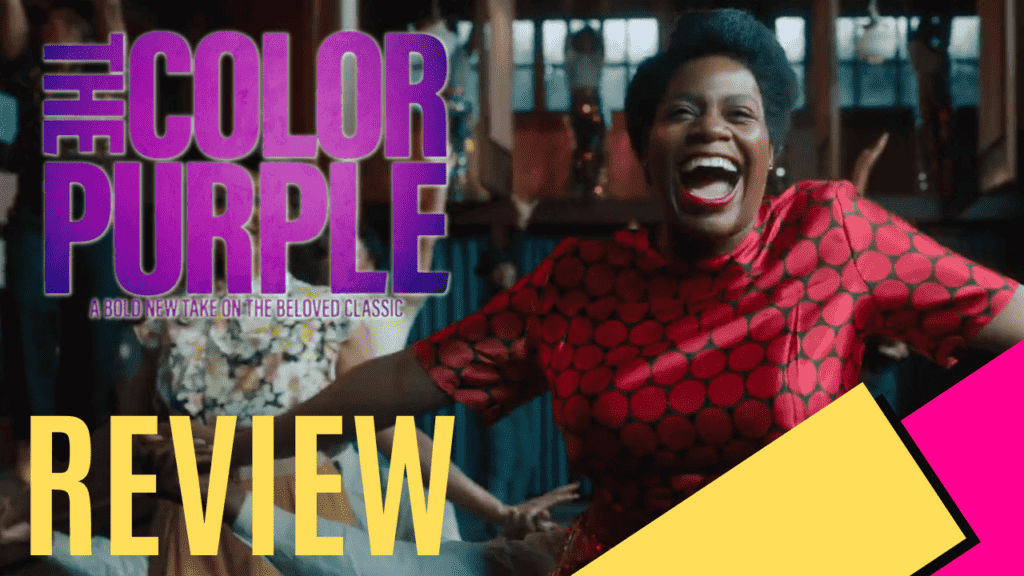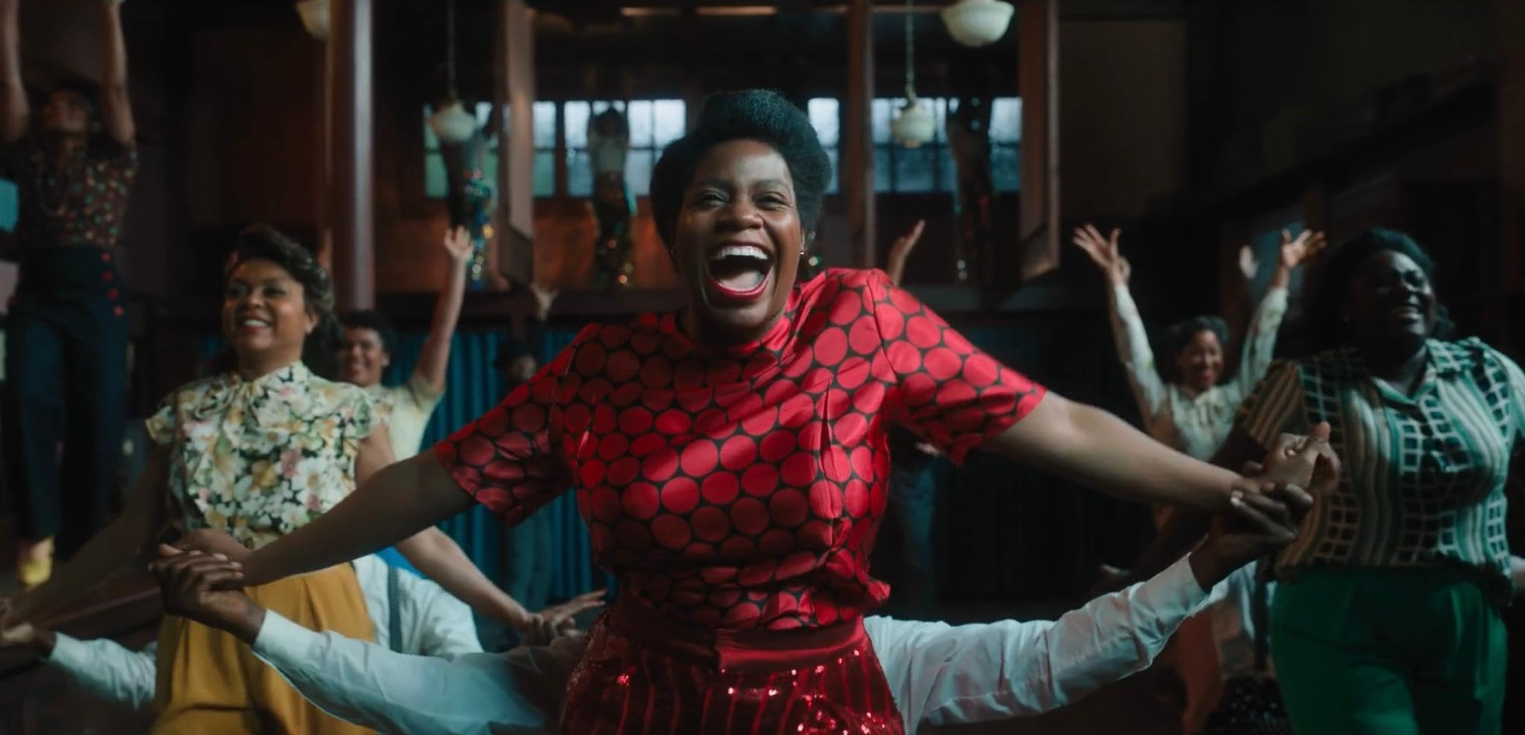
There are movies in this world that deal with topics and themes that will make people uncomfortable and that’s the whole point. The viewer is meant to feel what the characters feel, and really take stock in a situation, asking themselves how they would react if they were in place of those on screen. When you’re dealing with musicals, it’s. ‘The Colour Purple’, as a musical, straddles the line between a grounded, heartfelt, and confronting story, and that of light entertainment. The catchy melodies, while fun, bring more of a lightheartedness and should be taken more seriously, thus delivering a slightly confusing emotional tone throughout the film.
Though the title may be familiar to some elder millennial readers and the older generations, this version of The Colour Purple is based on the musical stage production of the same name, which in turn is an adaptation of the original Pulitzer Prize-winning novel written by Alice Walker.
Directed by Blitz Bazawule, of “Black Is King” fame, this version of the story draws only a couple of things from the incomparable 1985 film adaptation by Steven Spielberg, itself based directly on the novel, but brings a slightly more intimate framing and vision to the story.
The film begins with two inseparable sisters, Celie and Nettie, who live under the thumb of their incredibly strict father. We follow the life of Celie, played by Fantasia Barrino in a rather quiet and understated performance, as she is set upon and taken advantage of by practically every single man in her life.

From the outset, it may appear as though this story is solely about the struggles of being black and female in the early 1900s in a budding America, but the core message relates to women everywhere.
Through her often-torturous existence, Celie endures physical and mental abuse from first her father, and then her husband known as “Mister,” turning her into a hollow shell of her former existence. It is the latter man who banishes Celie’s sister Nettie, played by Halle Bailey in too short of an appearance. This sends Celie into a quiet depression that she struggles to find release from, which is only compounded by Mister’s horrible mistreatment of her.
There are strong moments of emotional turmoil on display, but the first half of this film runs along at a cracking pace which doesn’t leave much time for the viewer to genuinely appreciate the depths of what could be incredibly effective scenes if they weren’t cut so short. The acting from all parties involved is fine, but we’re not given enough time with them in their lowest or highest moments to be able to connect as much as we should.
Throughout the film, Celie’s life brings her into contact with strong women who try to teach her to be more confident and stand up for herself, despite the crippling depression, anxiety, and fear. Sofia, played here by the amazing Danielle Brooks, attempts to bring Celie out of her shell and instil into her a righteous self-confidence which she, herself, displays at every turn.

The famous “All My Life I Had To Fight” speech from the 1985 adaptation is herein represented through an upbeat song which, given the serious nature of the subject matter, does not feel entirely appropriate despite how well Danielle Brooks is able to belt it out.
Rounding out the supporting main cast is Taraji P. Henson as the infamous jazz singer “Shug” Avery. Shug and Mister have a lascivious history together, but when Shug comes to stay with Mister and Celie it’s all laid out in the open. Celie, having been subjected to Mister’s constant and unapologetic pining for Shug, starts to become enamoured with the singer herself, and when Shug begins to return those affections, it becomes the start of a very slow turning point in Celie’s life.
Of course, this being a musical, the film is broken up by a number of songs that tell the story of the moment. The main cast are all accomplished singers, with Fantasia Barrino having won the third season of American Idol back in 2002. There are some great songs from Taraji’s “Shug” throughout the movie, though the standout might be Celie’s “I’m Here”, a triumphant ballad of self-realisation,
acknowledgment of her growth, and a transformation into a more confident version of herself. Obviously, due to the limitations of budget and runtime, there are a large number of songs from the stage musical that were unable to be included in the film but are worthy of looking up online if you get the chance.

The cinematography by Dan Laustsen is smooth and fluid, showing his talent for sweeping motion and framing that encompasses the focus of the characters but also a couple of large dance numbers. There are some subtle crane shots that guide the framing so naturally that you’d swear you were moving your own head. Some notable close-ups are soaked in golden streaming light rays, giving a holy feel to moments of high emotional impact.
Religion is a big part of life in the southern states of America, and it’s no small part of this story too. Celie loses her faith due to the appalling abuse she receives from the men in her life, and the story is not just a journey of self-discovery for her, but also one of recovering faith in her religion. Speaking of which, the local preacher is played by David Alan Grier in a rare serious role.
Throughout the annals of history, it has been emphatically proven time and again that men can be horrible, brutal bastards towards women. This film highlights that but unlike the grounded and gritty version from 1985, it shows the power of standing up for oneself through fun and catchy songs. Is this the right way to do it? It depends on how you feel about musicals portraying serious subject matter through lighthearted means. If that’s not your kind of thing, then definitely watch the Spielberg version. Otherwise, this is an entertaining film with a strong message that will still have an impact delivered by talented voices. Either way, it’s an important message and one that should never be ignored.

The Good
- Fantasia Barrino’s voice
- Taraji P. Henson is a cheeky delight
- Danielle Brooks is just the best
The Bad
- The first half of the film does not take enough time to form stronger emotional connections with the characters
- There are many songs left out from the stage musical due to time constraints
- If you do not like musicals that deal with heavy themes, this will not be for you








